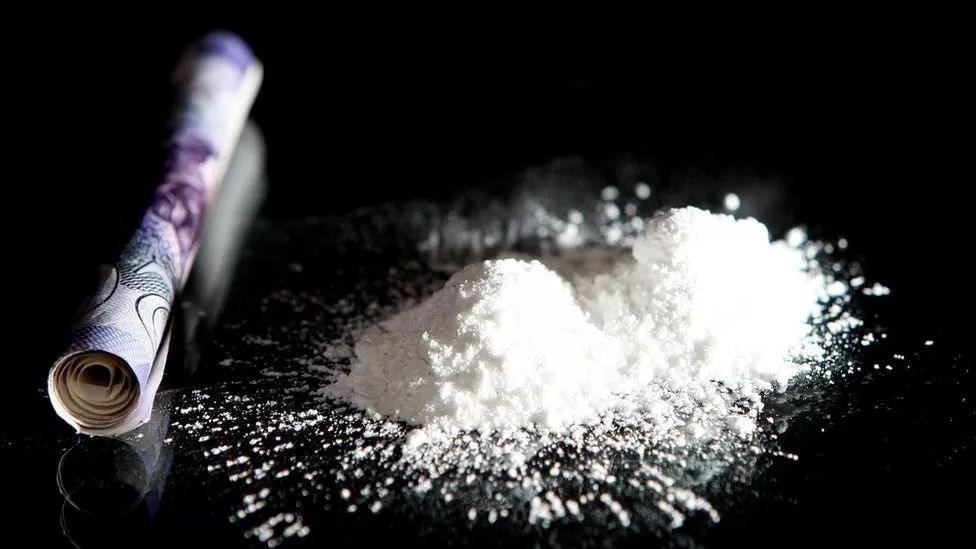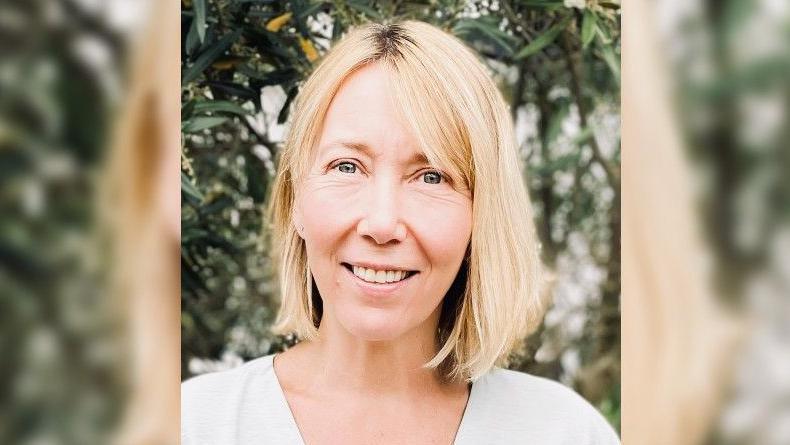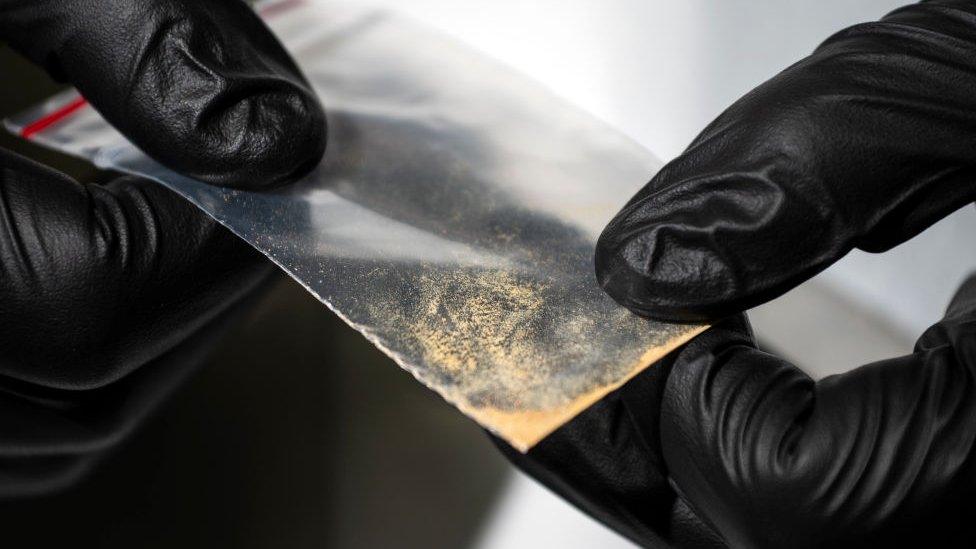Cocaine user's warning as drugs deaths soar

The north-east of England had the highest rate of drugs poisoning deaths last year
- Published
Cheaper and purer street drugs are contributing to a stark rise in cocaine deaths in the north-east of England, experts say.
Cocaine was a factor in the deaths of at least 471 people in the region since 1994, according to data from the Office for National Statistics (ONS), external.
The vast majority of those deaths - 380 - were recorded between 2013 and 2022.
As a drugs charity called for changes to drugs policy, a long-term user said the Class A drug is "more available" than ever.
BBC analysis of the latest ONS drugs poisoning figures for the North East show there were 66 deaths linked to cocaine in 2022, compared with eight in 2013.
In 1993, when records began, none were recorded.
The statistics record registered deaths where cocaine is mentioned on the death certificate.
They show 81% of those deaths happened in the decade to 2022.
'Ravaged'
Robert - not his real name - is 53 and began using drugs as a teenager.
The Middlesbrough man takes crack cocaine "every day" and estimates he can spend up to £3,000 a month on the drug.
"It's everywhere," he says, "this town is ravaged by coke, it's the worst I have ever seen it.
"Everyone I know is on crack cocaine - ten years ago, there was not as much of it about, but now the availability is horrendous and it's seen as more acceptable.
"It's still classed as a hard drug, but recreational users don't see it that way as it's so available and so many are using it.
"It used to be expensive, but now I can get cocaine for a fiver."
Robert, who has lost "many" loved ones to drug use, added: "The death rate is rising, drugs destroy lives and they destroy families.
"People need to be aware of what they're taking, there needs to be more education and understanding."
Rising deaths
Deaths where cocaine is mentioned on the death certificate rose five-fold in England and Wales between 2013 and 2022, from 169 to 857.
Of 7,600 deaths registered nationally since 1993, 71% of them were registered in that decade.
According to the ONS, cocaine has consistently been the second most-used drug, after cannabis, over the past decade.
Deaths linked to the drug have risen for 11 consecutive years.

Niamh Eastwood believes decriminalising drugs possession would create a safer environment for users
Niamh Eastwood, executive director of drugs charity Release, believes cheaper and purer cocaine is contributing to the increase.
She said: "Unfortunately, the government’s approach is to try and arrest their way out of the problem, which clearly isn’t working.
"There has been virtually no public health messaging on cocaine-related consumption, so people aren’t aware of changing purity and how to reduce harms from use."
'Dangerous cycle'
A government spokesman said it is committed to ensuring anyone with a drug problem can access the help and support they need.
The government's 10-year drug strategy, external, backed with £3bn in funding, aims to tackle illicit drugs supplies "through relentless policing action" and enhance the UK's treatment and recovery system.
Richard Lewis, drugs lead for the National Police Chiefs' Council, said: "Cocaine is a highly addictive substance and vulnerable users can often find themselves caught up in a dangerous cycle of exploitation.
"This is why there is also ongoing work to prevent drug use, highlight the dangers and empower our communities to report suspicious activity.”
Follow BBC North East on X (formerly Twitter), external, Facebook, external and Instagram, external. Send your story ideas to northeastandcumbria@bbc.co.uk.
Related topics
More stories from BBC North East and Cumbria
- Published22 December 2023
